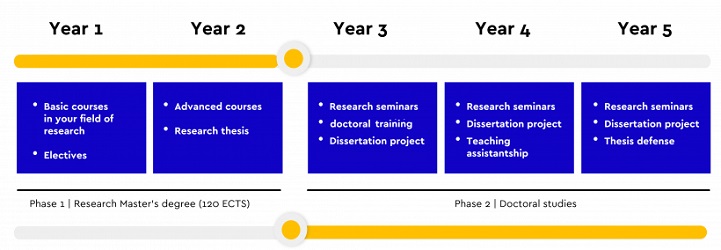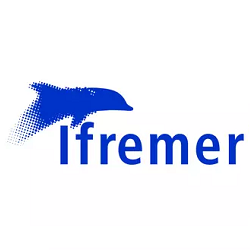A PhD in France offers unmatched chances to work on world-class, innovative projects. France is renowned for its contributions to research, science, technology, art, and culture. It draws thousands of international students each year to its esteemed doctoral programs. France provides an attractive environment for PhD studies, with more than 14,000 PhDs granted annually (according to Higher Education and Research in France, Facts and Figures). A PhD in France is a life-changing experience, regardless of whether you are drawn to its academic prestige or vibrant French lifestyle. The PhD structures, practical steps to navigate the application process, visa requirements, and the reasons why a PhD in France is a great choice are covered in this article.
Why Choose a PhD France?
Academic Excellence and Global Opportunities
A PhD in France is highly regarded due to the country’s strong academic reputation and contributions to global research. France ranks fourth in the Shanghai and Applyindex University Rankings for having multiple universities in the global top 50. Prestigious institutions such as Université PSL (#37), Sorbonne University (#48), and Institut Polytechnique de Paris (#49 by a-index Global University Rankings) are recognized for their research output. France’s research ecosystem benefits from substantial government investment, with €49.5 billion allocated annually (2.22% of GDP), supporting world-class facilities and institutions like CNRS and Institut Pasteur.
Many PhD programs are taught in English, especially in STEM fields, making them accessible to international students. Programs like the PSL PhD Tracks and the Pasteur-Paris University (PPU) emphasize international collaboration, offering global networking opportunities. Graduates of French PhD programs are highly employable, with expertise in research, innovation, and critical thinking sought after across academia, tech companies, fintech, chemical industries, and government sectors. The prestige of French universities and research institutions enhances your career prospects worldwide.
Affordability, Culture, and Lifestyle
Affordability is a major advantage of studying for a PhD in France. Public universities charge approximately €400 per year in tuition, regardless of nationality, making it one of the most cost-effective options in Europe. Many PhD positions are fully funded, often offering monthly stipends of €1,400–€1,500 through doctoral contracts, allowing students to focus on their research. France also offers a vibrant cultural and lifestyle experience. From the art and cuisine of Paris to the historic charm of cities like Toulouse, doctoral students enjoy a rich and immersive environment. Over 250,000 international students study in France, contributing to a dynamic, multicultural academic community. Even though many programs are offered in English, learning basic French can enhance everyday life.
PhD in France: Basics
Like many other European nations, France frequently treats PhD positions as employment-based contracts, especially when it comes to “allocations de recherche” or agreements with research institutions. Like jobs, these positions offer a salary or stipend and may include certain research responsibilities. Their emphasis on research training and the possibility of pursuing additional academic endeavors, however, also sets them apart from traditional employment contracts.
Types of PhD Positions in France
PhD formats in France are similar to Germany, i.e., structured PhD program (and its variations) and individual PhD, but there are a few differences. For example, in France, the structured doctoral programs are not typically structured as usual doctoral programs in Germany, the US, or Canada, with a first year dedicated to finding and refining a thesis research topic. Instead, PhD candidates in France need to find a thesis topic and a PhD supervisor before applying, and a relevant doctoral school must also accept the selected research topic. Both French universities and non-university research institutes offer both structured and individual PhD pathways.
Individual PhDs in France
Here is one of the big differences between France and Germany when it comes to individual PhDs. The individual PhDs are rare at French universities, and they are commonly offered by non-university research institutes such as CNRS, Ifremer, Inria, and Institut Pasteur. The individual PhD in France involves working closely with a thesis supervisor on a pre-defined, specific research topic. It offers flexibility in research and time management, which is ideal for self-motivated students. This model suits independent researchers with a clear dissertation idea. A PhD supervisor is already allocated to these PhD research projects by the organization posting the position. A full-time PhD in France under this model typically takes 3 years (up to 6 years for part-time).
In an individual PhD in France, the focus is on producing an original thesis, with no mandatory coursework and final exam requirements. Candidates do not need to prepare a research proposal for applying to the individual PhDs, as the research topic and title are already defined. Funding for an individual PhD in France can come from supervisors who have won research grants or French government scholarships allocated to research institutes and universities, such as the Eiffel Excellence Scholarship, offering €1,800 monthly for PhD students.
Structured PhD Programs in France
Semi-Structured PhD Programs in France
Similar to Germany, the structured PhD programs in France are indeed semi-structured PhDs. There is, however, a huge difference as mentioned above: in France, you have to close a deal with a faculty member to accept being your PhD supervisor (also called thesis director in France), and your thesis topic should be finalized before registering for a doctoral school. Finally, the doctoral school must accept your suggested research topic and grant funding to you. Similar to Germany, these PhD programs combine courses, seminars, study days, research, dissertation, and PhD viva. These programs are offered by both universities and non-university research institutes in France.
The structured PhD programs in France are taught in English and include 100-150 hours of additional training over the program duration. The first 1–2 years of a semi-structured PhD in France involve coursework in research methodologies and field-specific topics, followed by independent research culminating in a dissertation. These programs are ideal for those candidates who are seeking a clear PhD framework. Most structured PhD in France are 3-year fully-funded positions, offering €1,400–€1,500 monthly depending on the university, contract type, and funding source. A structured PhD in France ensures comprehensive training and professional development.
Example: Sorbonne University’s Semi-Structured PhD
The most well-known French university that provides these 3-year semi-structured PhD programs is Sorbonne University. The humanities, languages and social sciences, sciences and engineering, and medicine are all covered by the 23 doctoral schools at Sorbonne University. All PhD-related issues fall under the preview and management of each doctoral school as they are in charge of hiring, supervising, educating, and defending doctoral candidates. They validate each doctoral candidate’s unique educational plan and provide courses and scientific activities to them. Aix-Marseille University (amU) and University of Bordeaux are other examples with 3-year doctoral programs with 100 hours of training during this period.
Example: Pasteur Paris-University (PPU) International Doctoral Program
Established in 2009 by the Institut Pasteur, the Pasteur Paris-University (PPU) International Doctoral Program provides PhD training in partnership with leading Parisian universities. In one of 144 state-of-the-art labs, students carry out research in a variety of disciplines, including neuroscience, virology, immunology, and genomics. In addition to receiving mentorship and access to top-tier technology platforms, they also take part in professional development courses in scientific communication, ethics, soft skills, and French. In order to address topics such as infectious diseases, public involvement, and MD-PhD integration, the program offers specialized tracks, such as PPU-Oxford, PPU-IMAGINE, and PPU-EID. PPU promotes interdisciplinary cooperation, scientific excellence, and individual development in an engaging academic setting while cultivating an inclusive, global research community.
5-Year PhD Tracks in France
Some universities, such as Université PSL, Université Paris-Saclay, and Institut Polytechnique de Paris, offer PhD tracks, which are 5-year PhD programs that include 2 years of research-based master’s and 3 years of PhD studies. We can fairly claim that these are similar to the direct PhD in USA and direct-entry PhD in Canada. They are intended for high-potential students hoping to become top-level researchers, in France or abroad. Through these PhD Tracks, universities support outstanding students for the entire duration of their graduate studies, from their master’s to the completion of their PhD. For example, the Université PSL PhD Tracks provide €10,000 annually during the master’s phase and a minimum gross salary of €2,200 per month for the PhD phase.

Students receive a master’s degree upon completion of the first two years of the program. They are guided by an academic supervisor throughout the master’s program. They assist you in creating your scientific project and obtaining the needed resources to conduct it. Students must pass a qualifying exam to have their doctoral dissertation project approved after completing their master’s program. The specifics and details of this exam differ depending on the PhD track. After that, they will go straight to the university to pursue their doctoral studies. The PhD research project is the sole focus of the following three years, which end with the awarding of the PhD degree.
Joint and Dual PhD France
Joint PhD programs in France (known as “cotutelle”) involve collaboration between a French university and an international institution, allowing students to earn a degree issued and awarded jointly by both parties. PhD candidates enroll at a French university, such as Paris 1 Panthéon-Sorbonne, amU, or Sorbonne University, and a foreign university, with a joint PhD agreement outlining supervision and requirements. It is supervised by at least two PhD supervisors, one in each of the two institutions. It typically involves one dissertation, defended at one of the institutions, with examiners from both. These programs enhance the international scope of a PhD in France, ideal for globally focused researchers.
In a joint PhD in France, students split their time between institutions, benefiting from diverse academic environments and resources. In some cases a joint PhD in France can be called a dual PhD degree. It is indeed a joint PhD when a student receives two separate degrees from both sides. They are both recognized by both universities/institutions. A dual PhD requires a bilingual or dual-language agreement, with the thesis often written in English and a summary in French. It may also require two separate PhD thesis defenses. These programs enhance the prestige and global recognition of a PhD France.
Eligibility Criteria and Requirements for a PhD in France
Approaching Supervisors
Candidates must secure a thesis director and research topic approved before applying for structured PhD programs in France. In fact, contacting supervisors is a crucial requirement, so without it, you cannot enter the application process through doctoral schools. Identify professors whose research aligns with your interests by reviewing their publications on the university or lab websites. A strong research proposal will boost your chances of persuading supervisors to be your PhD thesis director. A personalized email with your CV, research proposal, and explanation of your fit for their work can secure a supervisor for your journey. Platforms like Applyindex can match your profile with suitable supervisors for a PhD in France.
Application Documents
Although exceptional bachelor’s degree holders may be considered for PhD Tracks, candidates normally need a master’s degree or its equivalent to pursue a PhD in France. Your academic records are also significant. Competitive PhD positions in France typically require a minimum GPA of 12 on a 20-point scale (keep in mind that the French grading system is out of 20). This indicates that the proposed research project and prior research experiences are given a higher weight percentage. Applications for a PhD in France are significantly strengthened by research experience combined with publications. In France, PhD degrees can be awarded by certain non-university research institutes, such as Institut Curie. Therefore, you ought to review the admission requirements of those institutions.
English proficiency is necessary for PhD programs taught in English, even though precise minimum requirements are not specified. However, you will be competing against international talent to win funding or a scholarship, so having high scores like the TOEFL (90–105) or IELTS (7.0–7.5) increases your chances. Like in Germany, there are no set minimum requirements for English and French proficiency test scores (DELF/DALF), as your research experience, the originality and strength of your proposal, and the number of publications you have are more important. In the competitive pool of applicants, keep in mind that having high language proficiency test scores will help you stand out. When applying for a PhD program in France, recommendation letters are also essential.
Application Process for a PhD in France
For individual PhDs, just apply using the application form for a specific PhD research project. Upload the necessary documents listed above, along with a motivation letter. In contrast, selecting a supervisor and thesis topic is the first step in the PhD program’s application process. This is followed by doctoral school approval. After that, online applications are used to submit the necessary documents. On universities’ and research institutes’ websites, PhD program deadlines should be examined one by one. Applications for the structured programs must be submitted within a certain window of time each year. For example, the application window for PhD tracks in Université PSL is mid-October to mid-December. Individual PhDs, however, can show up at any time with short deadlines.
Make sure every document is submitted accurately and is customized for the particular PhD program in France. Check university websites frequently for information on French PhD openings and application requirements. When applying for a PhD in France, candidates frequently have in-person or Zoom interviews where they discuss their research proposal and program fit. Following acceptance, foreign students need to apply for a “Passeport Talent-Chercheur” visa, which requires a letter of admission, evidence of financial support (either personal funds or a completed funding source), and health insurance.
Applyindex gives candidates a single, smart platform to manage and navigate their process when applying for the PhD in France. It effectively and consistently assesses the quality of your resume, calculates your likelihood of receiving funding, creates a data-driven Word document of your resume, demonstrates how to locate a supervisor who has research grants, emails them automatically on your behalf, arranges your notes, and performs numerous other tasks during your application process. Read the article “How Applyindex works for applicants” for details.
PhD in France by Discipline
The country’s industrial champions and publicly funded “grands organismes” are closely linked to France’s doctoral landscape. World-class facilities, well-defined pipelines into research and development (R&D) roles, and CIFRE industrial contracts are all advantageous to doctoral candidates. France provides a particularly strong combination of academic depth and business demand in the three fields listed below. From deep‑tech AI to reusable launchers and magnetic confinement fusion, France’s discipline-specific PhD programs blend rigorous science with immediate industrial traction, making the nation a smart choice for researchers hoping to see their work quickly translate into practical application.
PhD in Artificial Intelligence & Data Science in France
France’s National AI Strategy under the ‘France 2030’ plan is intended to attract the best AI talent. The Jean-Zay supercomputer, located outside of Paris, is available for PhD projects on large-scale language and vision models. PhD candidates can join one of more than 200 teams working on robotics perception, privacy-preserving machine learning, neuromorphic hardware, and other topics through INRIA’s Talents doctoral track. These teams are frequently paired with Thales, Atos, or Capgemini under CIFRE contracts. Mistral AI, a unicorn startup, actively seeks doctoral researchers for its Paris “Large Model Lab”. PhD holders have several options outside of academia, like joining Google’s and Meta’s Paris AI centers, or joining scale-ups like Dataiku and ContentSquare.
PhD in Aerospace & Space Engineering in France
Toulouse hosts Europe’s largest aerospace cluster, and CNES annually funds about 100 new PhD fellowships in fields like orbital debris mitigation, launcher propulsion, and Earth-observation analytics. At the industrial end, Airbus’s PhD program offers three-year contracts that put candidates right into the satellite telecom, hydrogen propulsion, or aerodynamic design divisions, giving them access to the company’s digital twins and wind tunnel network. In another scenario, doctoral students can expedite their careers in Europe’s reusable rocket programs by dividing their time between university labs and ArianeGroup’s cryogenic-stage test site in Les Mureaux for launch systems. The outcome is a nearly seamless transition into R&D positions at Thales Alenia Space, Safran, and Airbus.
PhD in Nuclear Fusion & Low‑Carbon Energy in France
With PhD programs in advanced materials, reactor physics, and hydrogen production at locations in Saclay and Grenoble, the CEA serves as a focal point for French energy research. This is supplemented by CIFRE contracts from utilities giant EDF, e.g., a 2025–2028 thesis on unsupervised anomaly detection for nuclear plant time-series. The sector’s crown jewel is ITER in Cadarache, which aims to reach first-plasma milestones in 2025. ITER gives students a front-row seat to fusion’s “mini-sun” by hosting the annual FuseNet PhD Event and providing placements in diagnostics, cryogenics, and plasma-control algorithms. Graduates move seamlessly into positions at CEA Tech, Framatome, or new fusion startups like Renaissance Fusion in Grenoble, positioning France as a springboard for global low‑carbon energy careers.
How to Find a PhD in France
Universities’ and non-university research institutes’ websites are the primary sources to find a PhD position in France, detailing application deadlines and requirements. In addition, online platforms like Applyindex, Campus France, and Euraxess are key resources for finding PhD positions in France. Applyindex mostly lists the individual PhD research projects in France. The Campus France and Euraxess platforms list funded and unfunded PhDs in France across universities and research institutes, allowing candidates to filter by discipline and funding type. Creating alerts on these platforms ensures you stay updated on new PhD opportunities in France. Checking multiple portals increases your chances of finding suitable PhD positions in France.
Funding Options for a PhD in France
In France, a large number of PhD positions are fully funded by doctoral contracts that pay €1,400-€1,500 per month, frequently through universities or research institutions like Institut Pasteur, CEA, or CNRS. Initiatives like PSL PhD Tracks, CIFRE industry agreements, and ANR-funded projects also offer financial support. International candidates are further supported by prestigious scholarships such as the Marie Curie PhD Scholarship and the Eiffel Excellence Scholarship (i.e., offers €1,800 per month plus travel and housing allowances). Additional funding is available through the Campus France Bourses catalogue and university-specific scholarships. They pay for living expenses and tuition. The likelihood of obtaining a stable and financially supported PhD in France is increased by applying widely and early.
French Visa Requirements for International PhD Students
International students pursuing a PhD in France require a long-stay visa (VLS) with the “Passeport Talent – Chercheur” (in English: researcher talent passport visa) label. Within two months of your arrival in France, you must go to the prefecture to apply for your multi-year residence permit with the “Passeport Talent – Chercheur” label. It is valid for the same duration as the hosting agreement, up to a maximum of four years. It is reserved for doctoral students and researchers. Important documents include a hosting agreement from an institution and proof of sufficient financial resources (at least €615 monthly). Visa applications are processed through French embassies, with processing times of 15-45 days.
During their PhD studies in France, students are permitted to work up to 964 hours per year as part-time employment to help pay for living expenses. If the French PhD program lasts longer than the original permit, extensions are possible. To guarantee on-time enrollment, the French PhD visa application process should start as soon as the applicant receives an acceptance letter. French universities offer Welcome Services to help with administrative procedures, such as applying for a visa. For the most recent requirements for a PhD in France, always check with the French embassy in your country.
Living as a PhD Student in France
Living costs during a PhD in France range from €600 to €800 monthly, with affordable housing options like student residences or shared flats. Cities like Paris, Toulouse, and Grenoble offer vibrant academic communities, with living costs slightly higher in Paris (€800–€1,200). A PhD in France includes access to university support services, such as language courses and career workshops. The multicultural environment of a PhD in France fosters networking, with over 70,000 PhD students enrolled annually, many international. Universities organize cultural events, seminars, and conferences, enriching the PhD in France experience. Students can explore France’s art, cuisine, and history, from the Seine River to the Palace of Versailles.
In France, PhD programs place a strong emphasis on work-life balance, with time management and wellbeing being encouraged. To improve their professional skills, PhD students take part in seminars, lab activities, and teaching. A fulfilling PhD in France is guaranteed, both academically and personally, thanks to the encouraging academic environment. Beyond the classroom, French life, particularly in Paris, offers a distinctively romantic experience, complete with lively cafés, art galleries, and classic architecture, as well as evening walks along the Seine. The PhD journey is made more complex by the allure of French culture.
After graduation, a PhD in France opens doors to jobs in academia, business, or government because of the country’s thriving economy. A Job seeker/New business creator” residence permit (in French: Carte de séjour “recherche d’emploi/ création d’entreprise”) allows PhD graduates to stay in France to pursue employment, leveraging the prestige of a PhD in France. With this one-year permit, graduates can remain in France to look for work or launch a business in their field of study. It is a way to go from being a student to a professional in France.

Tips for Success in a PhD in France
Different PhD formats in France are confusing, especially for international students who are not familiar with the French higher education system. Spend enough time to familiarize yourself with them and their PhD application process. The PhD application process in France is competitive, requiring a strong research proposal and supervisor approval. Tailor your application materials and contact supervisors early to secure PhD positions in France. Language barriers may challenge PhD students in France, even in English-taught programs, as daily life may require basic French. Enroll in free or subsidized French courses offered by universities to ease integration during a PhD France. Proficiency in French not only validates your academic networking experience but also improves your overall PhD experience in France.
You can obtain a PhD position in France by actively participating in conferences and congresses, interacting with possible PhD supervisors, and joining research groups to establish relationships. These connections may also result in post-graduation opportunities in France, funding, and PhD-time collaborations. Applyindex and Campus France are two platforms that can help you find PhD jobs in France and expedite the application process. Establishing research milestones and communicating with your supervisor on a regular basis will help you stay organized throughout your PhD in France. It can be difficult to balance research, coursework, and personal life while pursuing a PhD in France, so time management is essential. The secret to a successful PhD in France is perseverance and proactive planning.
Conclusion
A PhD in France provides a special fusion of cultural diversity, real-world experience, and academic brilliance. France is a great place for PhD candidates because of its highly regarded universities, state-of-the-art research facilities, and solid industry ties, thanks to programs like CIFRE contracts. The experience is further improved by reasonably priced tuition, abundant funding options, and a lively multicultural setting. The system encourages both professional and personal development, regardless of whether you choose to pursue an individual, joint, or structured PhD. Living in France gives your trip a romantic and enlightening touch. Following graduation, there are plenty of job options in academia, business, and beyond, as well as visa options to stay and further your career in France.








